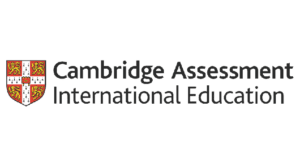
GL Assessment is a UK-based organization that specializes in educational assessments and testing materials. They provide a wide range of assessments for students of different age groups and levels. These assessments are used by schools, teachers, and parents to understand students’ abilities, track progress, and make informed educational decisions.
GL Assessment offers assessments that cover various subjects and skills, including:
- Verbal Reasoning: Assessing a student’s ability to understand and manipulate language, often involving tasks like analogies, code-breaking, and word relationships.
- Non-Verbal Reasoning: Evaluating a student’s problem-solving and pattern recognition skills through tasks that don’t rely on language, such as shape and pattern matching.
- Mathematics: Assessing mathematical skills and concepts, ranging from basic arithmetic to more complex mathematical reasoning.
- English: Evaluating reading comprehension, vocabulary, and grammar skills.
- Spatial Awareness: Assessing a student’s ability to understand and manipulate shapes and spatial relationships.
GL Assessment’s materials are often used in the context of entrance exams for selective schools, including grammar schools, independent schools, and other educational institutions. These assessments help schools identify students who are best suited for their academic programs. They also provide insights into students’ strengths and areas that might need further development.
It’s worth noting that educational practices and assessment methods can change over time, so for the most up-to-date information about GL Assessment and their offerings, it’s recommended to visit their official website or contact them directly.
IMPORTANCE.
GL Assessment is an organization that provides a range of educational assessments and testing materials to schools, educators, and parents. These assessments are designed to measure students’ abilities, skills, and knowledge in various subjects. The importance of GL Assessment lies in several key aspects:
- Objective Measurement: GL assessments provide an objective way to measure students’ abilities and progress. These assessments are standardized and carefully designed to provide consistent and reliable data about students’ performance.
- Informed Educational Decisions: The data gathered from GL assessments can help educators and parents make informed decisions about students’ education. It can guide decisions about placement in certain academic programs, identifying areas of strength and weakness, and tailoring teaching approaches to individual needs.
- Fair Selection: In the context of selective schools, GL assessments can help ensure a fair and standardized process for admitting students. By assessing students’ abilities through standardized tests, schools can make more equitable decisions about admissions based on merit.
- Identifying Gifted and Talented Students: GL assessments can identify gifted and talented students who might benefit from more challenging educational opportunities. These assessments help educators recognize exceptional abilities and provide appropriate support.
- Tracking Progress: GL assessments conducted at different points in a student’s education can help track their progress over time. This information is valuable for evaluating the effectiveness of teaching methods and curriculum.
- Parental Insights: GL assessments often include reports that parents can understand. These reports provide insights into a child’s academic strengths and areas for improvement, allowing parents to support their child’s learning effectively.
- Data-Driven Instruction: Educators can use the data from GL assessments to tailor their instruction to meet the needs of individual students. This data-driven approach can lead to more personalized and effective teaching strategies.
- Quality Assurance: GL Assessment provides carefully designed assessments that adhere to high standards of validity and reliability. This ensures that the assessments provide accurate and meaningful information about students’ abilities.
It’s important to note that while GL assessments offer valuable insights, they are just one part of a comprehensive approach to education. They should be used in conjunction with other forms of assessment, teacher observations, and contextual information about each student’s learning journey.
